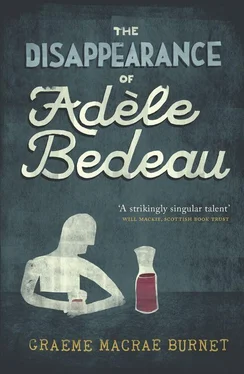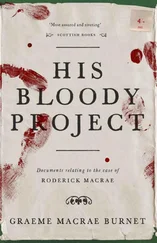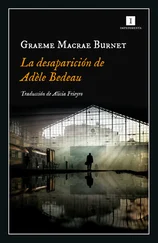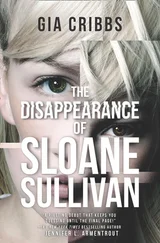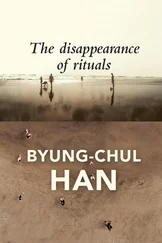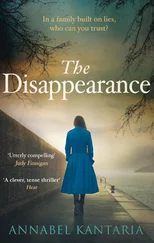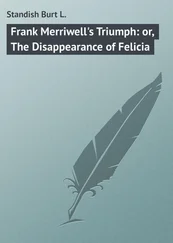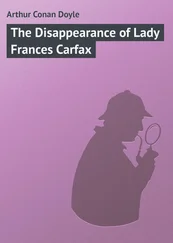‘But nothing came of that?’
‘No.’
‘So what are you doing here?’
Gorski took a sip of his sherry. It was horribly sweet. For a moment he had forgotten the purpose of his visit.
‘As I said, I have one question. After I left yesterday, I remembered that you had a son. When I came here before, I asked him a couple of questions.’
Paliard said nothing.
‘I was wondering where he is now.’
‘Why do you want to speak to him?’
Gorski did not have a ready answer to this question.
‘When I walked here from the clearing yesterday, I arrived at the door in the wall at the back of your property. Would I be correct in saying that the door has not always been in the state of disrepair it is in now?’
Paliard nodded.
‘It struck me that gate afforded ready access to the woods.’ Gorski was aware that this did not constitute a great insight.
Paliard smiled thinly. ‘You’re right about one thing, Inspector, the boy was never out of those woods. Used to disappear in there all day, at least until the murder. But he wasn’t my son.’
Gorski waited for him to continue. He raised his eyebrows questioningly.
‘He was my grandson.’
‘Your grandson?’
‘Manfred.’
‘Manfred?’ repeated Gorski. ‘Manfred Paliard?’
‘He’s not a Paliard. His name is Baumann, son of the Swiss good-for-nothing that ruined my daughter.’
Gorski ran the palm of his hand across his forehead and exhaled slowly.
‘He was a queer boy. Still is, if you want my opinion.’
Gorski nodded.
‘If you want to talk to him, my wife will give you his address.’
Gorski told him that wouldn’t be necessary. He finished his sherry and stood up.
‘Thank you for your time,’ he said. ‘You’ve been most helpful.’
The old man appeared disappointed that Gorski was leaving. The nurse opened the drawing room door to usher him out. He could hear the old man struggling for breath as he closed the front door. He stood for a few moments on the step of the big house. A plump woodpigeon was pecking at the gravel of the drive. Gorski’s footsteps did not disturb it.
MANFRED WAS WOKEN BY a loud knocking and a voice shouting something he was too drowsy to make sense of. He half opened his eyes. Sunlight filtered through dirty voile curtains. He was not at home. His head hurt and his mouth was dry. He closed his eyes. His trousers were loosened round the waist but he was still wearing his shirt and shoes. He squinted through his eyelids. The light from the window hurt his eyes and he raised a hand from under the blanket to shield them. The knocking at the door came again, more insistently. It was followed by a male voice that made no concession to Manfred’s fragile condition.
‘Monsieur! Eleven o’clock, time to clear out.’
Manfred turned towards the source of the sound. The movement triggered a shooting pain at the back of his skull. He was in a hotel room. Next to the door was a chest of drawers. At the foot of the bed was a cracked wash hand basin. There was a small plastic bucket on the floor beneath it to catch drips from the supply pipe. Manfred’s jacket lay in a crumpled heap on the floor. The chipboard at the bottom of the door was broken where someone had put their foot through it. There was no bathroom. Manfred hauled himself into a sitting position on the side of the bed. He became aware of a keen pressure in his bladder. He got up and relieved himself in the basin. He ran some water and, with some difficulty keeping his balance, splashed cold water on his face. His left cheek stung. He looked around for a towel. He picked up his jacket and took his handkerchief from his pocket and patted his face dry. He looked in the mirror above the basin. His left cheekbone was bruised and the right-hand side of his face and temple was grazed. The scratches were superficial, but the skin around them was red. Dried blood was congealed around his nostrils.
The door opened and a cleaner came in. She did not appear surprised to see Manfred, and she withdrew in the same languid manner as she had entered, muttering a cursory apology. Manfred hurriedly washed the blood from his nose and wiped it with his handkerchief, which already had bloodstains on it. He glanced around the room to see if any of his possessions were there. His wallet was safe in the inside pocket of his jacket. He left the room and found himself in a passage that had the sickly smell of vomit. The cleaner gazed at him impassively. Manfred squeezed past her trolley. The smell made him retch. He found the stairs and half ran down four flights. He found himself in a dimly lit reception area. A middle-aged man in a cardigan with half-moon glasses looked up from a newspaper spread on the counter. He greeted Manfred cordially enough. Manfred wondered if he was the same man who had rousted him from his room a few minutes before.
Manfred said good morning and reached into his jacket for his wallet.
The man waved his hand and spoke as if he didn’t expect him to understand French. ‘You paid last night,’ he said.
‘Oh,’ said Manfred, ‘thank you.’
Outside, he found himself in a narrow lane. He was still in Strasbourg, somewhere in the vicinity of the station. He spotted a kiosk at the end of the lane and bought a bottle of water. He sipped a little and swilled it around his mouth before spitting into the gutter. Then he took a proper swallow. He was unaware of the people milling past him on the pavement. He felt dizzy and sticky with sweat. He went into a café and ordered a black coffee. The last thing he remembered was being in the bar, drinking whisky. He had no memory of leaving the bar or of going to the hotel. Nor could he remember how he got the scratches on his face. Probably he had fallen over. He was sure he had not been in a fight. He would remember such a thing. The unpleasant odour had followed him from the hotel. He realised that there was dried vomit on his shoes and the cuffs of his trousers. He downed his coffee, placed some coins on the table and left. The coffee oriented Manfred a little in the present. He remembered his arrangement with Alice for that afternoon and looked at his watch. It was twenty past eleven.
On the train back to Saint-Louis, the light began to flare, as if hot sunlight was being smeared on the inside of his eyelids. Manfred lodged the heels of his hands in his eye sockets. The familiar drilling sensation in his right temple commenced. Manfred was the only person in the carriage. He drew his knees up towards his chest and sat there, rigid, waiting for the journey to pass. The trick was to empty his mind, to ignore the coming onslaught. He tried to think gay thoughts and imagined himself walking hand in hand with Alice through a pleasant, verdant wood. Birds were singing. The sun was warm. Manfred’s jacket was slung casually over one shoulder. He made amusing small talk. But it was no good, the pain continued to mount.
A hand was placed on his shoulder. Manfred jumped.
‘Your ticket, monsieur.’
Manfred took his hands from his eyes and drew his knees down. The ticket inspector’s face was a pink blur. Behind his head, light flared like a halo. Manfred raised his hand to shield his eyes. The official repeated his request.
Manfred reached into the breast pocket of his jacket where he always kept his ticket. He handed it to the inspector who gave it a cursory glance. He asked Manfred if he was all right. He nodded that he was. The conductor did not move away. Manfred could not tell what expression he wore. It might have been concern or perhaps disgust.
‘I’m fine, thank you, I have a headache,’ he said. He was suddenly anxious that he had missed his stop, but the conductor, having looked at his ticket, would have informed him if this had been the case. The official made his way off along the aisle without another word. Manfred squinted out the window and saw that they had only just left Strasbourg. As the train picked up speed, the motion made Manfred want to vomit. He did not trust himself to make it to the WC at the end of the carriage. He threw up a little in his mouth and forced himself to swallow. He wiped his lips with his handkerchief. He longed to be at home in his darkened bedroom with the covers pulled over his face.
Читать дальше
